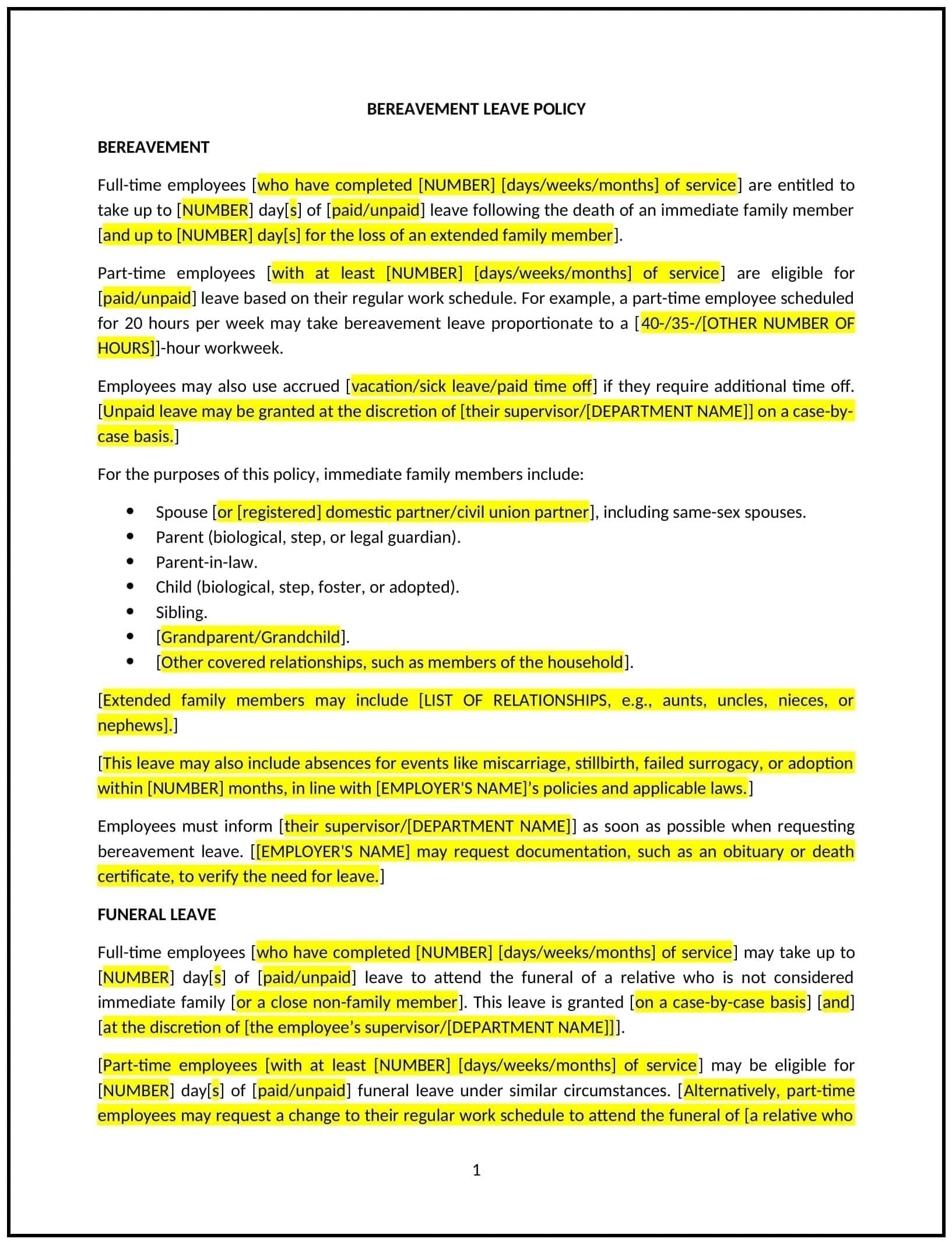Got contracts to review? While you're here for policies, let Cobrief make contract review effortless—start your free review now.

Customize this template for free
Bereavement policy (Texas)
This bereavement policy is designed to help Texas businesses establish clear guidelines for providing time off to employees who experience the death of a family member. Whether businesses are addressing paid or unpaid leave, the length of time off, or the process for requesting bereavement leave, this template offers a structured approach to managing employee needs during a difficult time.
By adopting this template, businesses can support grieving employees, maintain operational continuity, and create a compassionate workplace environment.
How to use this bereavement policy (Texas)
- Define eligible family members: Clearly specify which family members qualify for bereavement leave, such as parents, siblings, spouses, children, or extended family members, based on business needs and legal considerations.
- Set the amount of leave: Outline the number of days employees are entitled to for bereavement leave, specifying whether the leave is paid or unpaid, and any special conditions such as additional days for more distant relatives.
- Establish notification procedures: Detail how employees should request bereavement leave, including the necessary notice period, the documentation required (e.g., obituary, death certificate), and the contact person for leave requests.
- Address leave for additional circumstances: Specify whether leave can be extended for special circumstances, such as attending funerals or assisting with funeral arrangements, and any requirements for additional documentation.
- Set return-to-work expectations: Explain the process for employees returning to work after bereavement leave, including any flexibility in work hours or modified duties, if necessary.
Benefits of using this bereavement policy (Texas)
This policy offers several benefits for Texas businesses:
- Supports employees during difficult times: Offering bereavement leave allows employees to grieve and attend to family matters without the added stress of work responsibilities.
- Reduces disruptions: A clear policy ensures that businesses can manage workloads during bereavement periods, minimizing disruption while showing compassion for employees’ needs.
- Enhances employee satisfaction: Providing bereavement leave shows that a company values and respects its employees’ personal lives, which can increase employee loyalty and retention.
- Ensures consistency: A well-defined policy helps ensure that all employees are treated equally when requesting time off for bereavement, avoiding potential confusion or inconsistency.
- Complies with legal requirements: This policy helps businesses comply with any Texas state regulations related to leave for family emergencies or bereavement.
Tips for using this bereavement policy (Texas)
- Communicate clearly: Ensure all employees understand the bereavement policy, including eligibility, the process for requesting leave, and any documentation required.
- Be flexible when needed: Recognize that employees may need additional time or flexibility during difficult times and try to accommodate their needs without affecting business operations.
- Maintain confidentiality: Handle requests for bereavement leave confidentially to respect employees’ privacy during sensitive situations.
- Track leave appropriately: Keep accurate records of bereavement leave, including the dates and duration, to ensure proper management of employee absences.
- Review regularly: Update the policy as necessary to reflect changes in Texas state laws, company operations, or employee feedback regarding bereavement leave.